第3章 CHAPTER I(3)
I pay hard-working, conscientious ladies to teach this child things right and proper for her to know. They tell her clever things that Julius Caesar said; observations made by Marcus Aurelius that, pondered over, might help her to become a beautiful character. She complains that it produces a strange buzzy feeling in her head; and her mother argues that perhaps her brain is of the creative order, not intended to remember much--thinks that perhaps she is going to be something. A good round-dozen oaths the Captain must have let fly before Dick and I succeeded in rolling her out of the room. She had only heard them once, yet, so far as I could judge, she had got them letter perfect.
The Captain, now no longer under the necessity of employing all his energies to suppress his natural instincts, gradually recovered form, and eventually the game stood at one hundred and forty-nine all, Malooney to play. The Captain had left the balls in a position that would have disheartened any other opponent than Malooney. To any other opponent than Malooney the Captain would have offered irritating sympathy. "Afraid the balls are not rolling well for you to-night," the Captain would have said; or, "Sorry, sir, I don't seem to have left you very much." To-night the Captain wasn't feeling playful.
"Well, if he scores off that!" said Dick.
"Short of locking up the balls and turning out the lights, I don't myself see how one is going to stop him," sighed the Captain.
The Captain's ball was in hand. Malooney went for the red and hit--perhaps it would be more correct to say, frightened--it into a pocket. Malooney's ball, with the table to itself, then gave a solo performance, and ended up by breaking a window. It was what the lawyers call a nice point. What was the effect upon the score?
Malooney argued that, seeing he had pocketed the red before his own ball left the table, his three should be counted first, and that therefore he had won. Dick maintained that a ball that had ended up in a flower-bed couldn't be deemed to have scored anything. The Captain declined to assist. He said that, although he had been playing billiards for upwards of forty years, the incident was new to him. My own feeling was that of thankfulness that we had got through the game without anybody being really injured. We agreed that the person to decide the point would be the editor of The Field.
It remains still undecided. The Captain came into my study the next morning. He said: "If you haven't written that letter to The Field, don't mention my name. They know me on The Field. I would rather it did not get about that I have been playing with a man who cannot keep his ball within the four walls of a billiard-room."
"Well," I answered, "I know most of the fellows on The Field myself.
They don't often get hold of anything novel in the way of a story.
When they do, they are apt to harp upon it. My idea was to keep my own name out of it altogether."
"It is not a point likely to crop up often," said the Captain. "I'd let it rest if I were you."
I should like to have had it settled. In the end, I wrote the editor a careful letter, in a disguised hand, giving a false name and address. But if any answer ever appeared I must have missed it.
Myself I have a sort of consciousness that somewhere inside me there is quite a good player, if only I could persuade him to come out. He is shy, that is all. He does not seem able to play when people are looking on. The shots he misses when people are looking on would give you a wrong idea of him. When nobody is about, a prettier game you do not often see. If some folks who fancy themselves could see me when there is nobody about, it might take the conceit out of them.
Only once I played up to what I feel is my real form, and then it led to argument. I was staying at an hotel in Switzerland, and the second evening a pleasant-spoken young fellow, who said he had read all my books--later, he appeared surprised on learning I had written more than two--asked me if I would care to play a hundred up. We played even, and I paid for the table. The next evening he said he thought it would make a better game if he gave me forty and I broke.
It was a fairly close finish, and afterwards he suggested that I should put down my name for the handicap they were arranging.
"I am afraid," I answered, "that I hardly play well enough. Just a quiet game with you is one thing; but in a handicap with a crowd looking on--"
"I should not let that trouble you," he said; "there are some here who play worse than you--just one or two. It passes the evening."
It was merely a friendly affair. I paid my twenty marks, and was given plus a hundred. I drew for my first game a chatty type of man, who started minus twenty. We neither of us did much for the first five minutes, and then I made a break of forty-four.
There was not a fluke in it from beginning to end. I was never more astonished in my life. It seemed to me it was the cue was doing it.
Minus Twenty was even more astonished. I heard him as I passed:
"Who handicapped this man?" he asked.
"I did," said the pleasant-spoken youngster.
"Oh," said Minus Twenty--"friend of yours, I presume?"